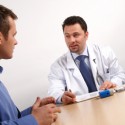Anti-drinking ads boost boozing for some
Health campaigns aimed at keeping teens and others from drinking and driving, smoking and other risky behaviors often use shame and guilt to get their messages across.
But a new study finds anti-drinking ads can actually spur increased binge drinking for some audiences.
“The situation is worse than wasted money or effort,” said study researcher Adam Duhachek, a marketing professor at Indiana University. “These ads ultimately may do more harm than good, because they have the potential to spur more of the behavior they’re trying to prevent.”
Duhachek and his colleague Nidhi Agrawal of Northwestern University showed that particularly for individuals already in an emotional state of guilt or shame, the ads could trigger a defensive mindset. The defense essentially allows them to underestimate how vulnerable they are to the consequences, thinking, “It only happens to other people.”
“The conventional wisdom from people who design these ads is, ‘If we scare people enough it’s always going to be a good thing,” Duhachek told LiveScience. “We demonstrate circumstances where they [not only] aren’t effective, but they cause a backlash where people actually drink more than if they hadn’t been exposed to the ads.”
The findings come from several experiments involving more than 1,200 undergraduate students who looked at anti-drinking ads meant to elicit shame or guilt.
They tested two ads that showed the back of a person hugging the toilet bowl after a night of drinking. One ad, the guilt-inducing one, included information about the negative consequences a person’s drinking could have on friends and family, such as injuring others in a car accident. The other shame-inducing ad showed what friends and family would see, including watching the drunk person get into a car accident or get arrested.
In one part of the study, 478 undergraduates either wrote about an event in which they felt shame, guilt, or just an everyday experience, before looking at anti-drinking ads. Afterward, participants rated the likelihood they would binge drink in the coming year compared with the year prior. Binge drinking was defined as five or more drinks in one setting for guys and four drinks for girls.
The guilt-laden students were much more likely than others to say they would binge drink in the coming year when they saw anti-drinking ads meant to elicit guilt. A similar result showed up for the group primed to feel shameful before seeing the shame-inducing ads. So the backfiring of the ads showed up when an individual was already primed to feel some level of guilt, plus they got a dose of the guilt ad. The emotions of both the person and the ad had to match up, in other words.
Similar results were found in other parts of the study, including one in which students viewed the ads and then indicated the likelihood that they would consume three or more alcoholic beverages in the next two weeks as well as go to a bar in that time. The results will be detailed in the Journal of Marketing Research.
To tease out why the ads might boost drinking, the researchers asked participants the likelihood they and others would suffer the negative consequences of drinking, such as getting into fights or getting sick.
Students who saw the emotion-compatible ads (the guilt group viewing guilt-inducing ads, and the shame-primed group viewing the shame ads), were less likely to think they were at risk of these consequences compared with other groups.
And in another part of the study, students who looked at the emotion-compatible ads tended to rate their friends as being at risk of the negative consequences of drinking, but when asked the same of themselves they didn’t think they were vulnerable to those outcomes.
“Because people aren’t as defensive when assessing their friends, they felt their friends were at greater risk while they were not,” Duhachek said.
Lab results don’t always translate to the real world. But the researchers think these experiences, in which one feels a sense of guilt and then views an anti-drinking advertisement, do happen in the real world.
“We argue that it’s very infrequent when people aren’t under the influences of some emotion,” Duhachek said.
For instance, the researchers say it’s easy to imagine someone watching a TV show that triggers some kind of guilt or someone feeling shame after attending an alcohol treatment program.
Duhachek’s advice: If you want to positively influence drinking, make sure campaigns convey both the dire consequences and a message of empowerment. For instance, the ads could include ways to control one’s drinking or show instances where someone resisted the temptation to down too much alcohol.
“If you’re going to communicate a frightening scenario, temper it with the idea that it’s avoidable,” he said. “It’s best to use the carrot along with the stick.”
source: Live Science
